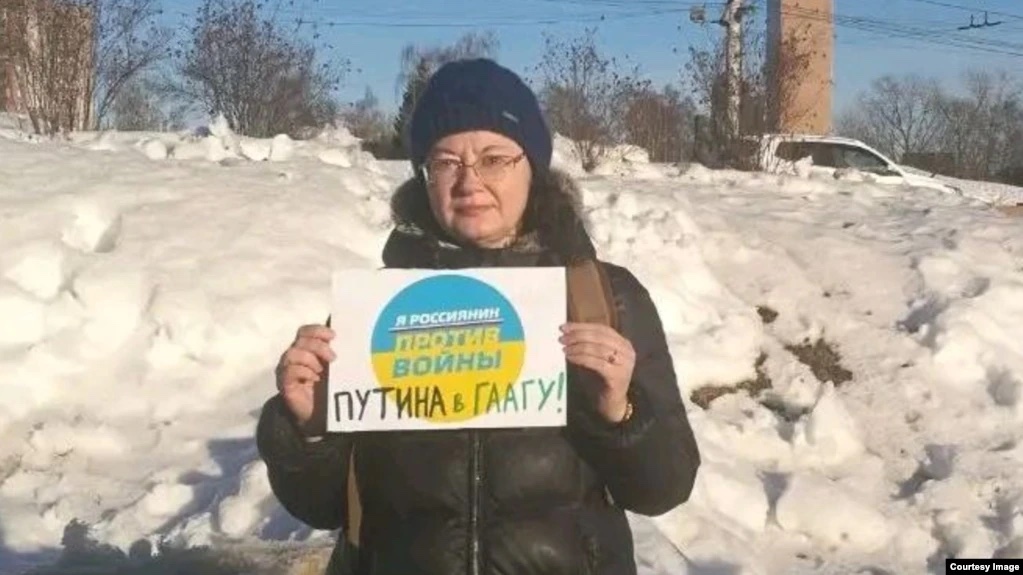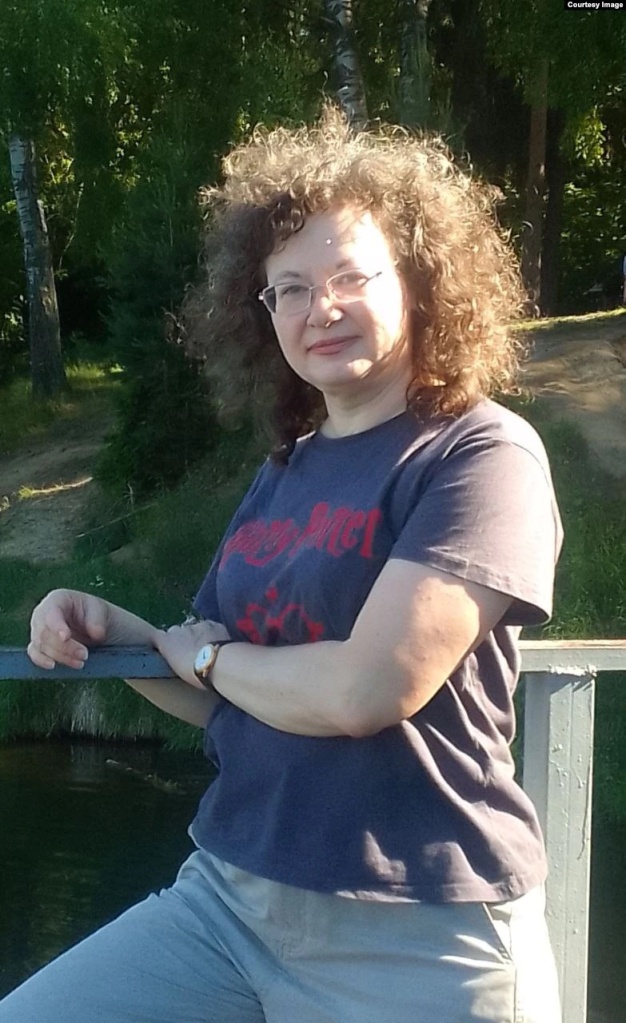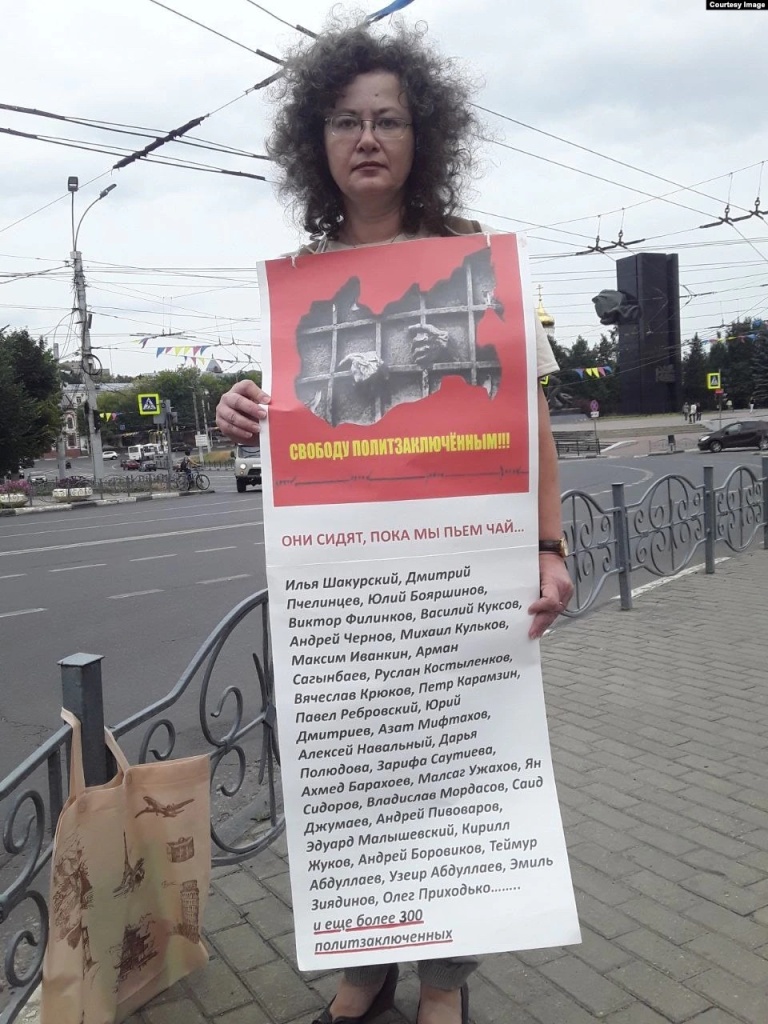 “Sanctioned product”
“Sanctioned product”
The Demand for Sanctions Specialists Has Grown in Russia
Svetlana Romanova
RBC
November 9, 2017
According to recruiting agencies and job search sites, he Russian job market has seen a growing demand for employees who understand the ins and outs of sanctions legislation.
According to Headhunter.ru, there were 27 published vacancies for sanctions specialists in October 2017; there were a mere nine vacancies in October 2014. Sberbank, VTB, UniCredit, Raiffeisen, Globex, and the Russian Regional Development Bank are among the companies now recruiting these specialists.
It is not only banks that have been generating the demand (they account for 44% of all vacanies) but also law firms (21%), accounting firms (11%), and insurance companies (10%). Starting pay is 250,000 rubles a month [approx. 3,600 euros a month], but experienced specialists can count on monthly salaries of 500,000 rubles, we were told by the personnel agencies we interviewed.
Vacancies advertised on websites are only the tip of the iceberg: headhunters are usually employed to find sanctions specialists. The first request for a sanctions specialist to the recruiting agencyHays was made by a major private Russian bank in late 2014, said Darya Anikina, managing consultant for financial institutions at Hays. Currently, the agency selects candidates for at least five positions a month at different companies. Our sources at the agencies Cornerstone, Kontakt, and Unity also told us about a deficit of sanctions specialists.
“The profession doesn’t exist officially. It’s not taught anywhere,” said Yuri Dorfman, a partner at Cornerstone.
Headhunters have to make compromises and use their imaginations. For example, Cornerstone recently succeeded in placing a specialist at a bank. At his previous job, he had been employeed preventing money laundering, and monitoring and stopping illegal financial transactions. Sanctions specialists are also aware of the demand and have been making the most of it. When moving to a new company, they ask for at least a thirty or forty percent raise, rather than the customary twenty percent raise.
Whereas sanctions specialists are sought out by banks and legal firms, the consumer goods retail sector has been vigorously looking for specialists to help it get round the Russian Federation’s countersanctions, meaning specialists in logistics and foreign trade. According to the website Superjob, the salaries for such vacancies increased by 18% in 2017.
______________________________
Sanktsionshchiki: Who Recruiting Agencies Are Hunting Nowadays
Svetlana Romanova
RBC
November 9, 2017
The Russian labor market’s demand for sanctions experts has been growing. People who practice this new, rare profession earn between 250,000 and 500,000 rubles a month, and employers have been headhunting them with a vengeance.
Since March 2014, the US, the EU, and other countries have been continously imposing more and more sanctions on Russian nationals, companies, and individual industries. This has provoked a demand for sanctions experts on the Russian jobs market. Some companies simply cannot do without their assistance. According to headhunters, there is a lack of such specialists. Employees who have improved their qualifications and learned how to deal with the restrictions and risks occasioned by sanctions can count on salary increases of thirty to forty percent.
Sanktsionshchiki
In March 2014, 46-year-old Artyom Zhavoronkov, a partner at the legal firm Dentons who specializes in mergers and acquisitions, was planning to travel to Washington, DC, to give a lecture to an American audience about how to build a business in Russia. But since the US had imposed the first set of sanctions against Russia [sic], the Americans cancelled the lecture. Zhavoronkov kept his head and suggested changing the subject of the lectures. He decided to talk about something more topical: the sanctions and their consequences. Ultimately, the lecture took place, and it was standing room only in the auditorium. It was then that Zhavoronko understood he had found a new business niche: legal advices on issues related to sanctions. Currently, he consults twenty to thirty international and Russian clients monthly.
Recruiting agencies received the first requests for sanctions specialists in the spring of 2014, but by the autumn of 2017 the demand for such specialists had become stable. The demand has grown not only for temporary consultants like Zhavoronkov: many companies seeks to hire in-house specialists. According to HeadHunter.ru, its website listed nine such vacancies in October 2014. By October 2017, that number had grown to 27. Candidates are usually expected to have degrees in law or finance, a good command of English, and a high tolerance for stress.
This is the tip of the iceberg, because companies usually employ headhunting agencies to find sanktionshchiki. Russian ompanies have realized no one is going to cancel the sanctions anytime soon, the lists of sanctioned companies and individuals have been expanding, and so the problem will not solve itself.
The first request for a sanctions specialist to the recruiting agency Hays was made by a major private Russian bank in late 2014, said Darya Anikina, managing consultant for financial institutions at Hays. Currently, the agency selects candidates for at least five positions a month at different companies. Compared with other professionals, this is a tiny figure, but for the time being they are all that is needed. In a company that employs a thousand people, there might be three or four such specialists, but they will earn more than their colleagues.
Who and What Banks Are Looking for
Vacancy: Specialist for international sanctions monitoring group
Duties: Vetting of bank clients and transactions against the lists of international sanctions, as imposed by the US, EU, UN, and other in-house lists. Search and analysis of additional information on the internet and the bank’s internal databases in order to analyze automatically generated warnings regarding the bank’s clients and transactions. Drafting of brief, well-argued analyses of automatically generated warnings. Filing of reports.
Requirements: Tertiary degree in economics, finance or law. No less than six months’ experience working in a credit institution. Experience working with automated banking systems. Command of written and spoken English at the intermediate level is obligatory. Ability to cope with large amounts of routine work. The candidate must be detail-oriented, focused, perseverant, able to learn quickly, proactive, diligent, and well-spoken.
Source: job listing on the website Headhunter.ru
Banks on the Hunt
Artyom Zhavoronkov provides sanctions-related legal services. He establishes whether the owner of a company with whom his client plans to make a business deal is not on the sanctions lists, and he drafts supply contracts that account for international restrictions. But he also provides more ambitious services. Recently, Zhavoronkov drafted a plan for an oil company: he conceived and drafted an in-house list of “sanctions” rules. For example, Zhavoronkov devised a special algorithm for sale managers that prevents them from making deals with companies and individuals on the sanctions list.
“If questions arise, sales managers contact legal counsel, and together they decide whether they can sign a contract,” Zhavoronkov explained.
Most of all, Zhavoronkov is proud he succeeded in getting a major company off the sanctions list. (He did not name the company, citing a nondisclosure agreement.) He conducted long negotiations with regulators, trying to prove to them that the circumstances that had led to his client’s ending up on the sanctions list had changed. Although the US Treasury Department’s Office of Foreign Assets Control (OFAC) has not made public a single instance in which the US has taken Russian companies off the sanctions lists, there have been precendents in other countries. In September 2014, Canada removed sanctions from two Russian banks, Expobank and Rosenergobank, acknowledging they had been placed on the sanctions list mistakenly.
The services of sanctions experts are needed by investment funds, including ones run by major banks, and the management companies of oligarchs who have been sanctioned, said Zhavoronkov. There is also demand from consulting companies. However, judging by job search websites, it is Russian banks that are most in need of employees versed in the ins and outs of sanctions. Since 2014, banks have accounted for 44% of such vacancies on HeadHunter.ru, with legal companies coming in second at 21%.
Recently, two vacancies were posted by the country’s largest bank, Sberbank. It seeks two experts for its international sanctions monitoring group. The specialists must prepare opinions on transactions and operations, that is, check whether they are covered by the sanctions imposed by international organizations and individual governments, consult with employees, and respond to their requests. Sberbank refused to tell us whether it had succeeded in filling the positions.
Other financial institutions have placed help wanted ads on HeadHunter.ru: VTB, UniCredit, Raiffeisen, Globex, and the Russian Regional Development Bank. None of them agreed to talk with us on the record. RBC’s sources at a major state bank confirmed they have a full-time sanctions specialist on staff. But the source refused to provide details, adding that no one wants to talk about it publicly, since the “topic is painful and nothing to brag about.”
Russian financial institutions that have been sanctioned need specialists to keep from having even more serious restrictions imposed on them and avoid jeopardizing their business partners.
Banks that have not been blacklisted need such specialists to avoid violating the sanctions by working with counterparties. Otherwise, they can also have their access to western loans cut off. Primarily, this concerns the top one hundred financial institutions in terms of assets. It is they who hire sanctions specialists, said Roman Kuznetsov, senior analyst at the investment company QBF. Each major bank has a few sanctions specialists, said Andrei Zakharov, director of the financial institutions personnel recruiting department at Kontakt.
Experience Is More Important than a Diploma
Of course, not a single Russian university educates sanctions specialists, nor are there any continuing education courses on the topic as of yet. Everything has to be learned on the job. Successful candidates for sanctions specialist jobs usually have three or four years’ experience working in legal compliance or auditing departments of banks. Candidates with other financial backgrounds are considered less often, said Darya Anikina.
Dentons employs 200 attorneys. Aside from Zhavoronkov, however, only two of his colleagues, both of them under thirty, deal with sanctions-related cases. Zhavoronkov is their mentor. He made it his goal to cultivate these unique specialists in firm. Currently, there are very few experienced employees who understand the intricacies of the sanctions. Three and a half years have passed since the first sanctions were imposed. This is too short a time to form a pool of specialists.
Unlike the Russian labor market, the specialization has existed on the American job market for several decades. Sanctions compliance in the US is an entire niche business, claimed Zhavoronkov. The staff of any American law firm usually has one such specialist. His or her work is considered routine.
According to Bloomberg, the demand for sanctions expertise in the US grew in 2014. American companies frequently hired former officials from the Treasury Department, who were involved in drafting most of the restrictions. For example, until 2014, Chip Poncy was head of the unit for combating the financing of terrorism and financial crimes at the Treasury Department, but after the first sanctions against Russia [sic] were imposed, Poncy founded Financial Integrity Network, which helps businesses deal with the restrictions.
The costs of making a mistake can be quite hefty. For example, the French bank BNP Paribas agreed to pay $8.97 billion in fines after it was discovered it violated sanctions regimes between 2004 and 2012, when it did business with individuals and companies from Sudan, Iran, and Cuba, which have been sanctioned by the US.
The Reverse Side of the Sanctions
Whereas banks and legal firms have been seeking sanctions specialists, the FMCG (fast-moving consumer goods) sector has been vigorously seeking people who can help them bypass the produce embargo imposed by Russia, that is, they have been seeking experts in logistics and foreign trade. According to the website Superjob, the job of foreign trade manager was among the top jobs in terms of salary increases in 2017. The starting salaries for such specialists have increased by 18% since the beginning of the year.
The Price Tag
None of the vacancies on HeadHunter.ru that RBC examined contained information on the salaries of sanctions specialists. However, recruiters says the starting salary of a specialist with little work experience is 250,000 rubles a month.
Nevertheless, it is difficult to fill the positions quickly, admitted Anikina. Nor is it always clear how and where to find the right people, Yuri Dorfman, a partner at the agency Cornerstone, agreed with Anikina.
“This is not marketing, where the process for filling jobs is clear and formalized. The profession doesn’t exist officially,” he said.
Recently, Cornerstone managed to find a specialist for the compliance department at a bank. At his previous job, he had been employeed preventing money laundering, and monitoring and stopping illegal financial transactions. Sanctions specialists, a new and rare breed, are also aware of the demand and have been making the most of it. When moving to a new company, they ask for at least a thirty or forty percent raise, rather than the twenty percent pay rise customary on the market.
Felix Kugel, managing director of the recruitment company Unity, sees an experienced attorney who has a thorough knowledge of corporate law as the perfect sanctions specialist. The salary of an employee like this could be around 500,000 rubles a month [i.e., over 7,000 euros; by way of comparison, according to the website Trading Economics, the average montly salary in Russia as of October 2017 was 38,720 rubles or 556 euros, although regular readers of this website will know that real monthly salaries are often much lower in particular occupations and regions—TRR].
It is unlikely sanctions specialists will be unemployed.
“I would be glad if the sanctions were lifted, despite the fact I earn money from them,” said Zhavoronkov, “but I am confident this won’t happen in the near future.”
Zhavoronkov recalls the Jackson-Vannick amendment to the Trade Act of 1974, which limited trade with countries that restricted emigration and violated other human rights, e.g., the Soviet Union, China, Vietnam, and Albania. It was officially abolished in 2012, although it had de facto ceased to function in 1987.
The new specialization will be in great albeit limited demand [sic] in Russia in the coming years, agreed Roman Kuznetsov. But additional knowledge about how the sanctions are structured would come in handy to all Russian banking, finance, and legal sector employees. Understanding the ins and outs of the sanctions means you have a good chance of increasing your salary by thirty to forty percent, we were told at Hays.
Restricted Area
The first set of sanctions, occasioned by the annexation of Crimea and the conflict in Donbass, were imposed by the US, EU, Australia, New Zealand, and Canada in mid March 2014. Since then, the black lists have expanded due to the inclusion of personal sanctions (directed at specific people and companies affiliated with them) and sectoral sanctions (directed against individual industries and activities), and other countries and international organizations have joined the sanctions regime. Currently, the US has sanctioned over one hundred Russian nationals and companies, not counting foreign companies connected with sanctioned Russians. The EU has sanctioned 149 individuals and 38 companies.
Five Russian banks with ties to the Russian state have been sanctioned: Sberbank, VTB, Gazprombank, Rosselkhozbank, and Vnesheconombank. These financial institutions are not eligible for long-term financing abroad, and US and European investors are forbidden from buying shares and Eurobonds from these banks. In addition, the US has banned doing business with 33 companies in the Russian military-industrial complex, including Kalashnikov, Almaz-Antey, Rosoboronexport, Rostec, United Aircraft Corporation, and Russian Helicopters. The oil and gas industry is represented in the black lists by Rosneft, Transneft, Gazpromneft, NOVATEK, Gazprom, and Surgutneftegaz. The US and UE have imposed sanctions not only on banks, military-industrial companies, and oil and gas companies but also on completely “peaceful” firms, for example, the drinking water and beverage manufacturer Aquanika, a subsidiary of Gennady Timchenko‘s Volga Group.
In 2016, [former Assistant Secretary of State for European and Eurasian Affairs at the US Department of State] Victoria Nuland said in Kiev that the sanctions would not be lifted until Russia returned Crimea to Ukraine.
Translated by the Russian Reader. Photo courtesy of Stringer





 The writing is on the wall.
The writing is on the wall.
 “Sanctioned product”
“Sanctioned product”



 Suicide by Crimea
Suicide by Crimea

